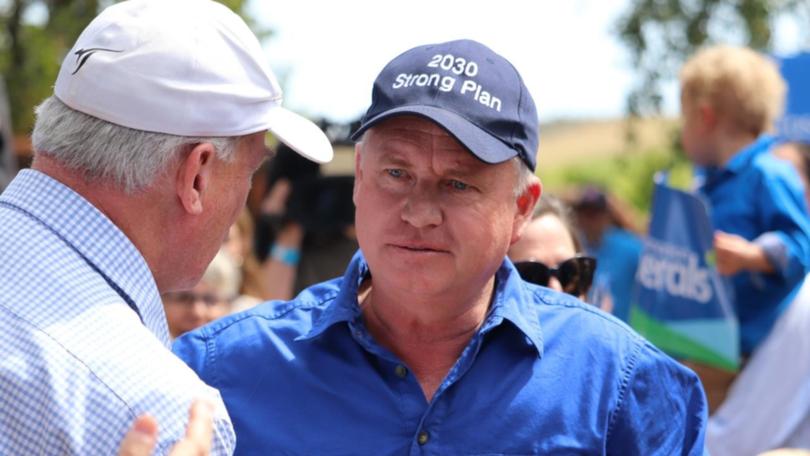Jeremy Rockliff's rocky road as 47th premier of Tasmania
Tasmania's Premier Jeremy Rockliff is aiming to lead the Liberals to a fourth consecutive term after a tumultuous two years in the top job.

Jeremy Rockliff grew up on his family potato farm in Tasmania, last year quipping he didn’t want to return to agricultural life with any regrets.
On Saturday, the 54-year-old will contest his first state election as premier when Australia’s only Liberal government chases a record fourth term in succession.
Mr Rockliff, a father of three, was first elected to parliament in the northwest electorate of Braddon in 2002.
Sign up to The Nightly's newsletters.
Get the first look at the digital newspaper, curated daily stories and breaking headlines delivered to your inbox.
By continuing you agree to our Terms and Privacy Policy.He became deputy premier when the party ended 16 years of Labor governments in 2014.
When popular premier Peter Gutwein, who guided Tasmania through the COVID-19 pandemic, retired in 2022 Mr Rockliff ascended to the top job.
It has been far from smooth sailing since.
The Liberals, who held a slim one-seat majority, were plunged into minority in May when John Tucker and Lara Alexander left the party to sit as independents.
The pair raised concerns with government transparency, particularly over the Liberals’ deal for an AFL licence which is contingent on contentious plans for a $715 million stadium.
The stadium, seemingly not part of an initial licence discussion, is opposed by Labor, minor parties and independents, and has sparked protests.
Tensions came to a head early this year after Mr Tucker threatened to pull his vote of confidence and supply, prompting a stand-off with Mr Rockliff and an early election call.
The government is also grappling with the fallout of an inquiry into child sexual abuse which made 191 recommendations and found horrific state failings over decades.
The Ashley Youth Detention Centre, described in inquiry hearings as a “monster”, remains open despite a Liberal promise to close it by the end of 2024.
An under-pressure health system, housing shortages and cost-of-living struggles have been top of the campaign issues.
Mr Rockliff enters the election without a host of big-name Liberal vote-getters from 2021, including Mr Gutwein who received almost half of the first preferences in Bass.
Another curveball for his party is the restoration of Tasmania’s lower house from 25 to 35 members.
Under the state’s proportional Hare-Clark voting system, each of the five House of Assembly seats will elect seven members.
Opinion polls point to a hung parliament, with the Liberals getting more seats than Labor but not enough to form a majority.
The latest EMRS survey had Liberal support at 39 per cent, below the party’s 49 per cent of the vote recorded in 2021, but well ahead of Labor’s 26.
More than a third of voters appear set to snub the major parties, potentially delivering a Greens, Jacqui Lambie Network and independent cross bench.
Mr Rockliff has repeatedly warned of a Labor-minority “coalition of chaos” but is open himself to forming a minority government without doing “deals”.
In November, he defended his pursuit of the stadium project despite hefty opposition.
“I don’t want to sit back in 10 years’ time when I’m back on the farm growing spuds thinking ‘you know what, if only I drove that a bit harder we might’ve got that’,” he said.
